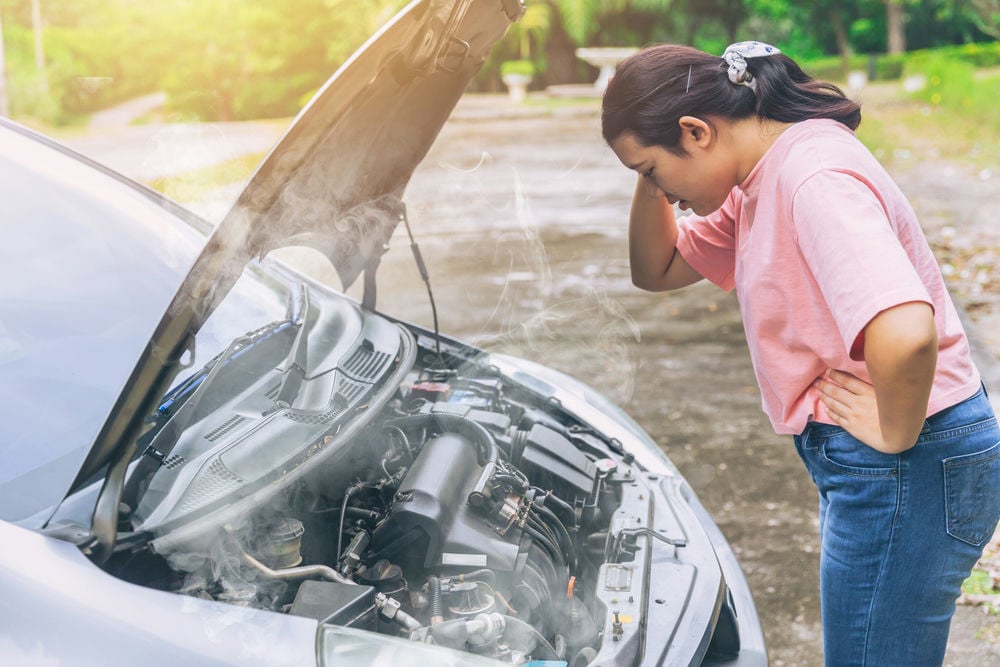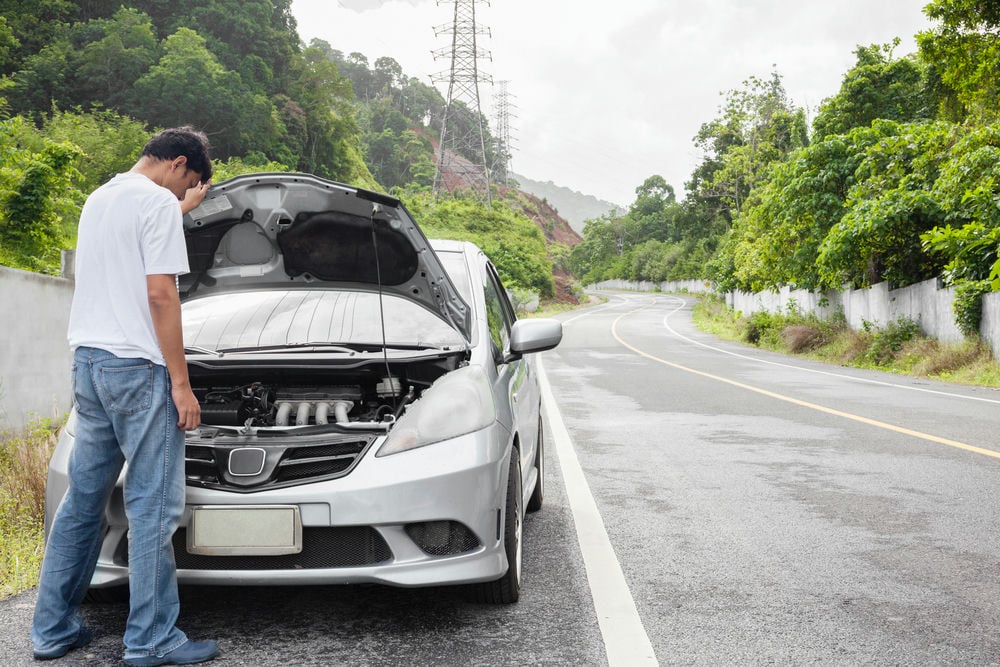When a car overheats, it means that the engine has become too hot and is in
danger of being damaged. This can be caused by a variety of factors, such
as a malfunctioning cooling system or low levels of coolant.
If you continue to drive your car while it's overheating, you risk causing
serious damage to the engine. The high temperatures can cause the metal
parts of the engine to warp and become brittle, leading to costly repairs.
In extreme cases, the engine may seize up completely, rendering the car
unusable.
It's absolutely important to pull your car over and turn off the engine as
soon as it's safe to do so if your car begins to overheat in order to avoid
these potential problems.
 Driving a car while it is overheating can cause catastrophic engine damage.
Driving a car while it is overheating can cause catastrophic engine damage.
How Long Can You Drive On An Overheated Engine?
It's not safe to drive a car with an overheated engine for any amount of
time.
The high temperatures can cause serious damage to the engine, and the risk
of a fire or other dangerous situation increases the longer you continue to
drive.
If you experience warning signs of an overheated engine, such as steam
coming from under the hood or a temperature gauge that is in the red zone,
you should pull over and turn off the engine as soon as you're able to.
You should also keep in mind that it's important to allow the engine to
cool down before attempting to diagnose or fix the problem.
In some cases, you may need to wait for several hours before it is safe to
open the hood or touch any of the engine components.
If you're unsure of how to safely address an overheated engine, it is best
to contact a mechanic or other qualified professional for assistance.
 A woman waiting on the side of the road with an overheating engine.
A woman waiting on the side of the road with an overheating engine.
How Long Can A Car Overheat Before Damage?
The amount of time it takes for an overheated engine to sustain damage can
vary depending on the severity of the overheating and the specific
characteristics of the engine.
In general, an engine that's allowed to continue operating at high
temperatures for an extended period of time is much more likely to sustain
serious damage than one that's only overheated briefly.
The specific temperature at which an engine begins to sustain damage can
also vary.
Some engines may be able to withstand higher temperatures than others, but
it's generally not safe to allow an engine to operate at temperatures above
the normal operating range for any extended period of time.
Can You Keep Driving If Your Engine Is Overheating?
Sometimes, you may find yourself in a situation in which it's not ideal for
you to stop your car if it begins overheating.
Driving on a busy highway, in a remote location, at night, or in bad
weather can all be examples of times you may want to keep driving until
it's safe to shut your engine off.
In these kinds of cases, it may be best to try to drive in very short
intervals, with long cool-down periods in between each time your car is
cranked until you can get to a safe location.
However, continuing to drive with an overheated engine can result in costly
repairs or even render the car unusable. It's best to take the necessary
precautions to avoid these problems.
If it's not absolutely necessary for you to drive your car, it's best to
either avoid it completely or limit it to emergency situations only until
the cause of the problem is fixed.
 A man looking over an engine that has failed due to catastrophic damage from driving while it is overheating.
A man looking over an engine that has failed due to catastrophic damage from driving while it is overheating.
Is My Car Ruined If It Overheats?
It's possible for an overheated engine to sustain serious damage, but it's
not necessarily the case that the car will be ruined as a result.
The extent of the damage will depend on how long the engine was allowed to
operate at high temperatures, the specific characteristics of the engine,
and the underlying cause of the overheating.
A qualified mechanic will be able to diagnose the damage to your engine if
it has overheated, and determine if it's repairable or not.
How Much Does It Cost To Fix A Car That Overheats?
The cost to fix a car that has overheated can vary widely depending on the
extent of the damage and the specific repairs that are required.
In some cases, the necessary repairs may be relatively minor, such as
replacing a faulty thermostat or refilling the coolant. These types of
repairs may cost a hundred dollars or less.
If the overheating has caused more serious damage, such as a warped
cylinder head or a seized engine, the cost of repairs can be much higher.
These types of repairs can easily cost several thousand dollars or more,
depending on the specifics of the case.
It's important to note that the cost of repairing an overheated engine may
exceed the value of the car in some cases. If the damage is extensive and
the cost of repairs is high, it may be more cost-effective to purchase a
new or used car rather than repairing the existing one.
It's also worth considering that the costs associated with an overheated
engine can go beyond the cost of repairs.
For example, if you continue to drive the car while it's overheating and
cause additional damage, the cost of repairs may increase.
Additionally, if you're stranded on the side of the road as a result of an
overheated engine, you may face additional costs for towing and other
emergency services.
Conclusion
It's important to be aware of the warning signs of an overheated engine and
to take immediate action if you suspect that your car is getting too hot.
Allowing an engine to continue operating at high temperatures for an
extended period of time can cause serious damage and may result in costly
repairs.